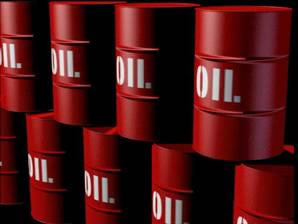Submitted by Anne Landman on
 BP and the media express quantities of oil gushing from BP's leak in the Gulf in different ways. The amount of oil coming out of the leak is most frequently expressed in barrels, but how much is that? Can people really relate to a barrel as a quantity? After all, we buy staples like gasoline, milk, and water by the gallon. To make it even more complicated for the public to understand the quantities being discussed, the amount of liquid in a barrel varies with what is being measured. Barrels of chemicals or food, for example, contain 55 gallons. A whiskey barrel is 40 gallons; a barrel of beer contains 36 gallons; a barrel of ale contains 34 gallons. (And the latter two are imperial gallons, which are just under two-tenths more than an American gallon.) All these variations in the barrel as a quantity of measure only further confuse the concept of what a barrel of oil looks like. Moreover, since oil companies started shipping oil in tankers they rarely actually ship oil in barrels anymore, so the barrel as a measurement has less practical use.
BP and the media express quantities of oil gushing from BP's leak in the Gulf in different ways. The amount of oil coming out of the leak is most frequently expressed in barrels, but how much is that? Can people really relate to a barrel as a quantity? After all, we buy staples like gasoline, milk, and water by the gallon. To make it even more complicated for the public to understand the quantities being discussed, the amount of liquid in a barrel varies with what is being measured. Barrels of chemicals or food, for example, contain 55 gallons. A whiskey barrel is 40 gallons; a barrel of beer contains 36 gallons; a barrel of ale contains 34 gallons. (And the latter two are imperial gallons, which are just under two-tenths more than an American gallon.) All these variations in the barrel as a quantity of measure only further confuse the concept of what a barrel of oil looks like. Moreover, since oil companies started shipping oil in tankers they rarely actually ship oil in barrels anymore, so the barrel as a measurement has less practical use.
Do the Math, Check Twice for Spin
When oil is coming out of the leak, BP tends to express the quantity in barrels, but when the company talks about how much oil it is collecting or incinerating, it will report the quantity in gallons. The day BP began burning siphoned oil from the ruptured well, for example, they reported that by noon that day they had burned 52,500 gallons of oil. It sounds like a significant amount, but that's just 1,250 barrels -- a microscopic amount compared to what is gushing from the blowout each day.
In any case, when reading or hearing news about the Gulf oil disaster, pay attention to how quantities are expressed. One barrel of crude oil equals 42 U.S. gallons, so multiply barrels by 42 to get the quantity being quoted in more familiar gallons. You may have to do some math to better interpret the quantities being discussed.

Comments
Peter Freeman replied on Permalink
Spinning the Barrel
Michael Moss replied on Permalink
Barrels or Gallons
marine fish tank replied on Permalink
Center for media
Joro123 replied on Permalink
The confusion with barrels
Anonymous replied on Permalink
Sadly, it will always be the
Rik Martin replied on Permalink
Wow. Thanks for the
Applicazioni replied on Permalink
confusing
Limey Transplant replied on Permalink
Maths error
From Canada replied on Permalink
Different types of gallons
Anonymous replied on Permalink
Barrels, US Gallons and Litres and BP
Pages